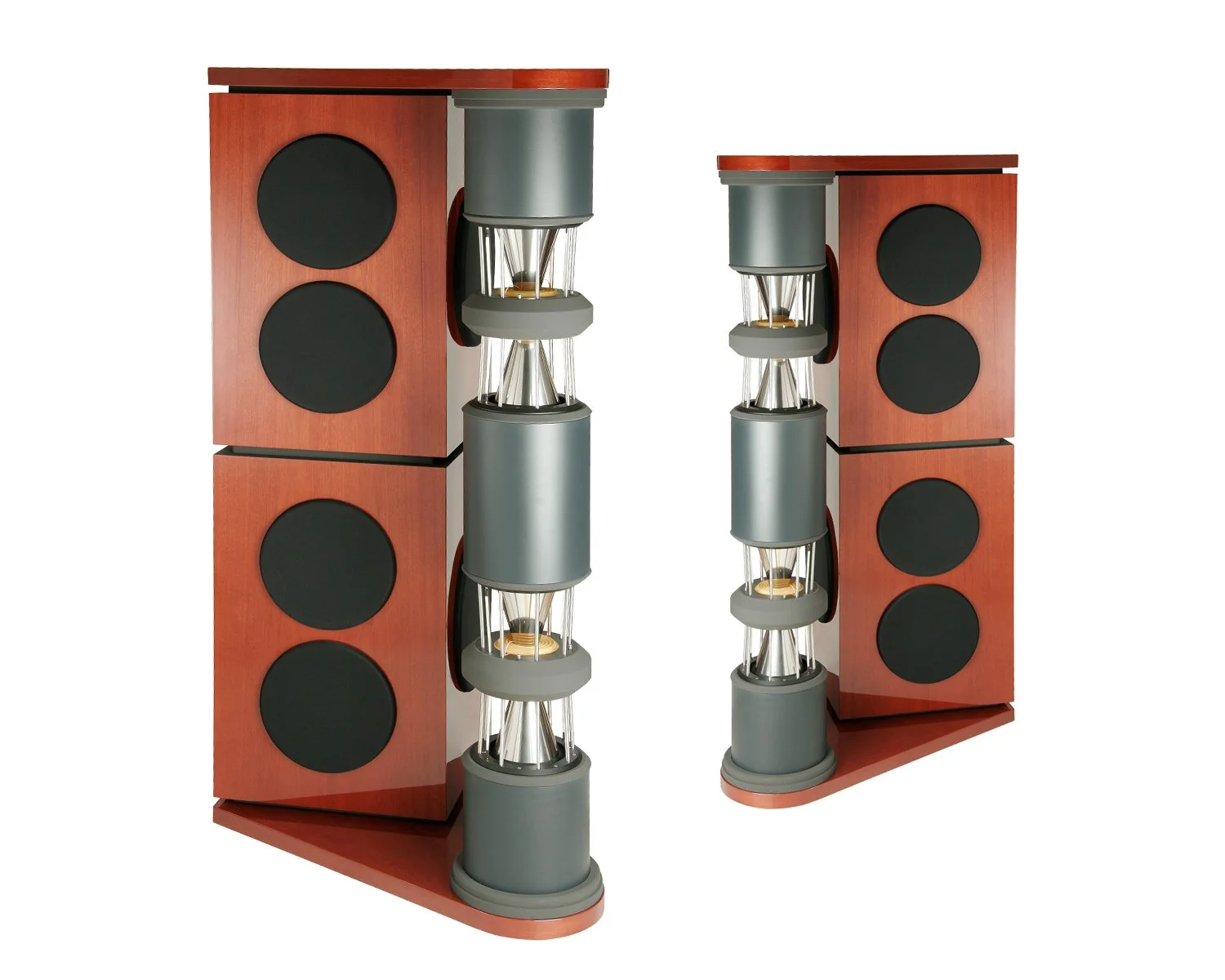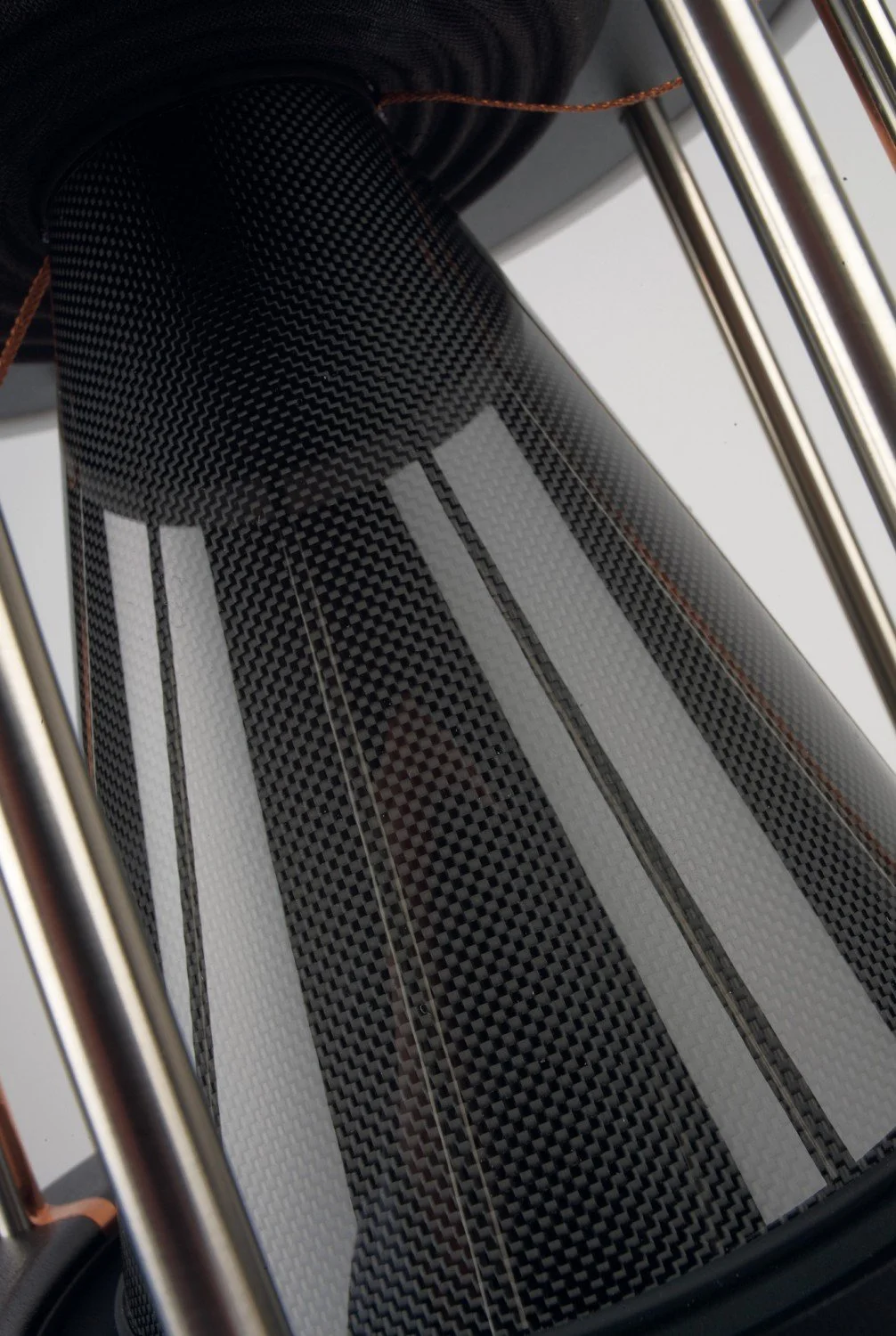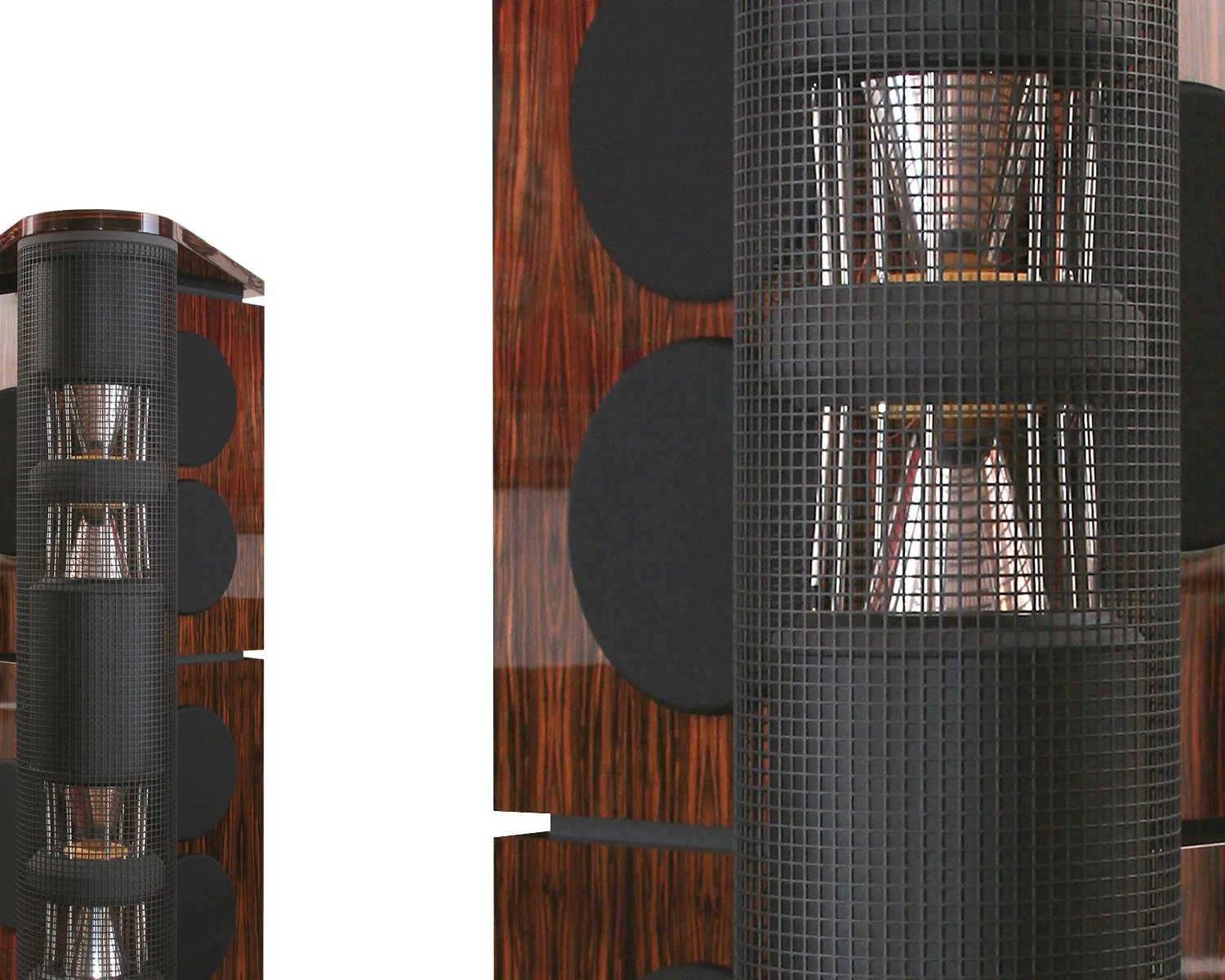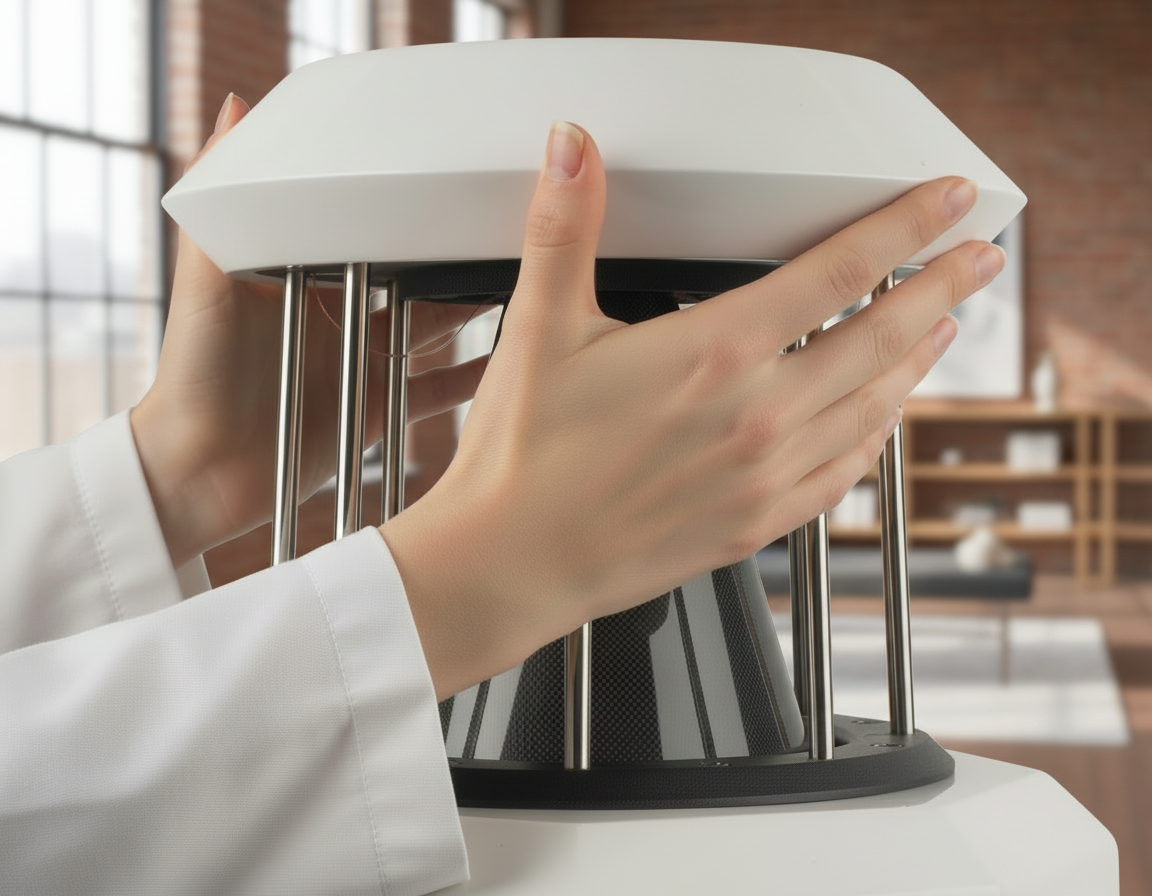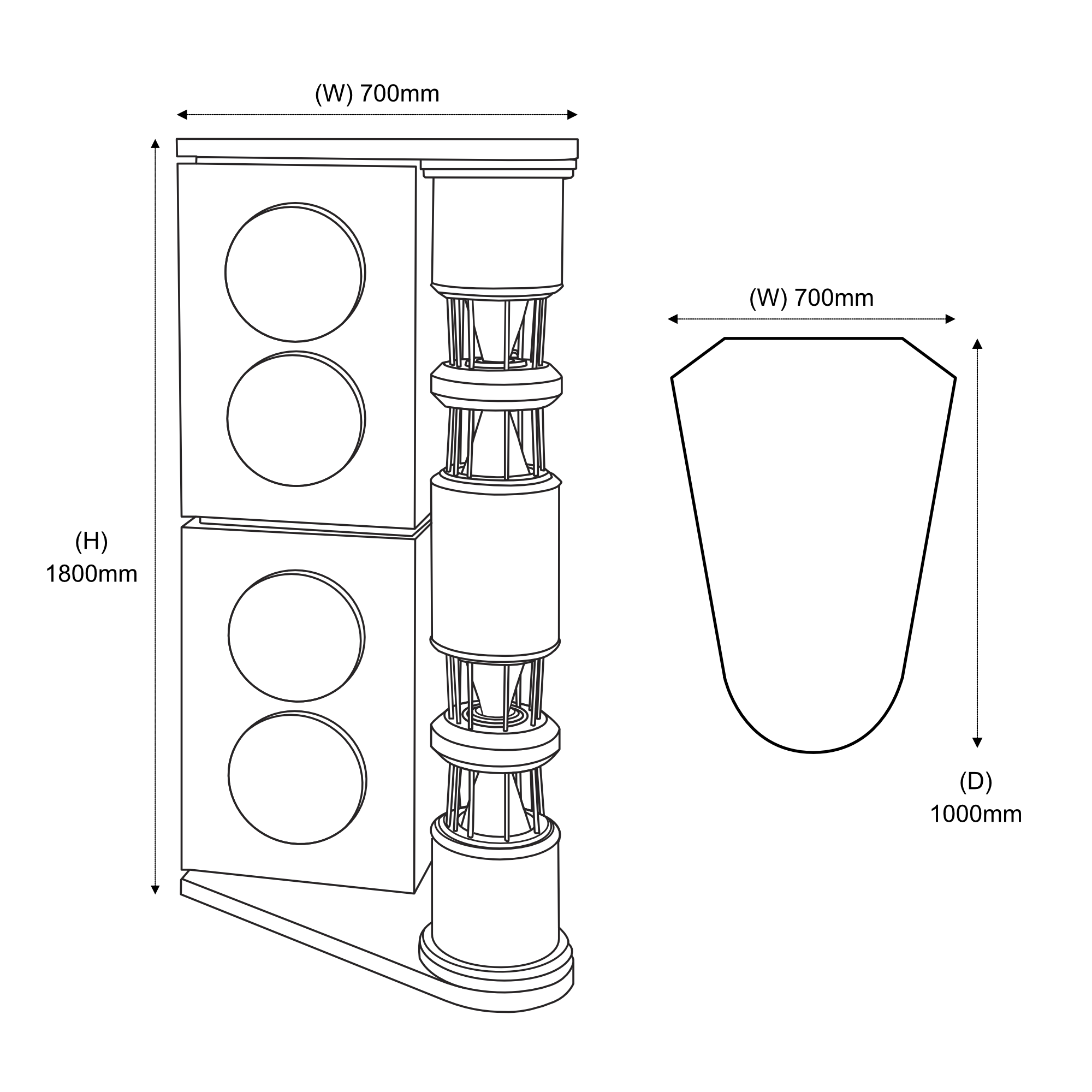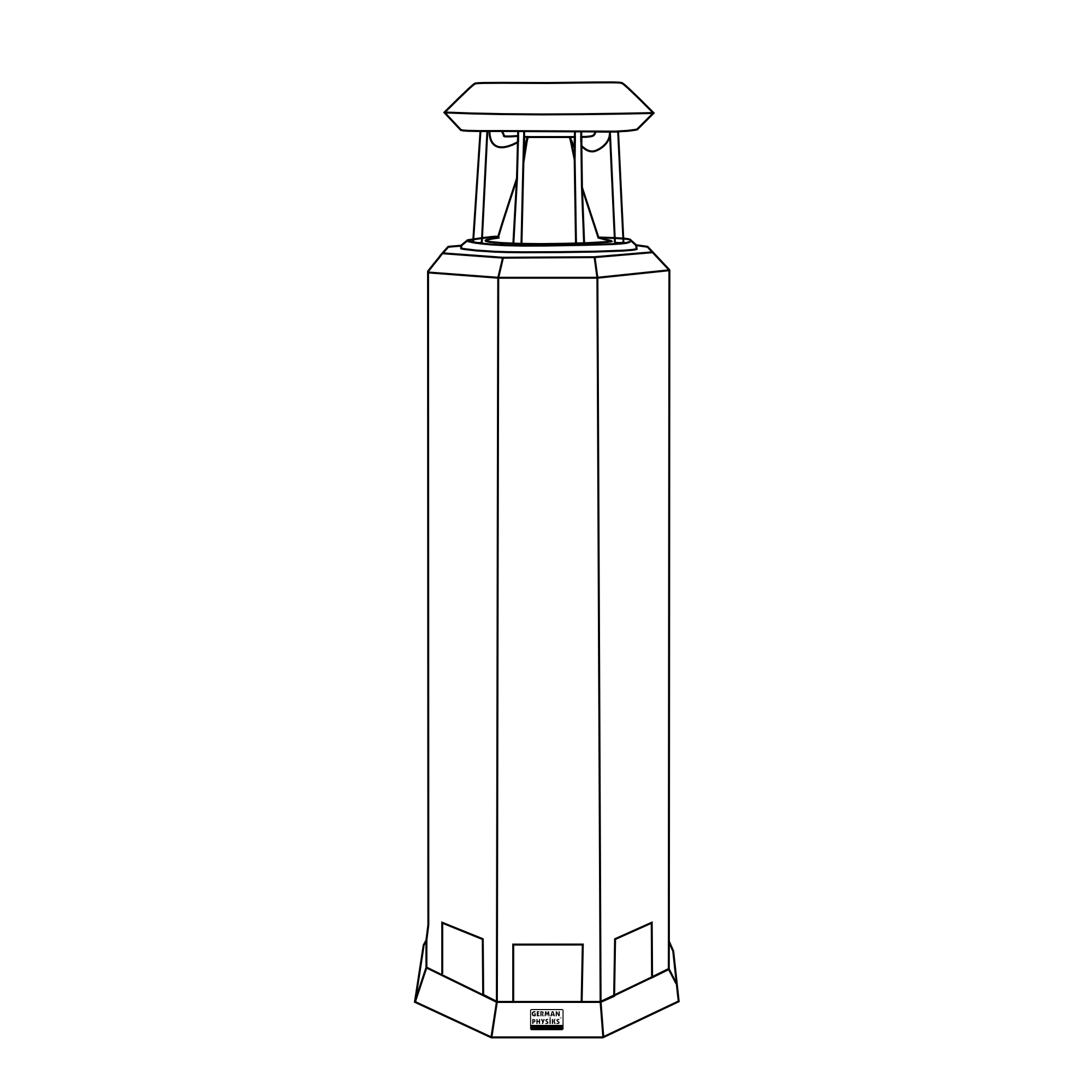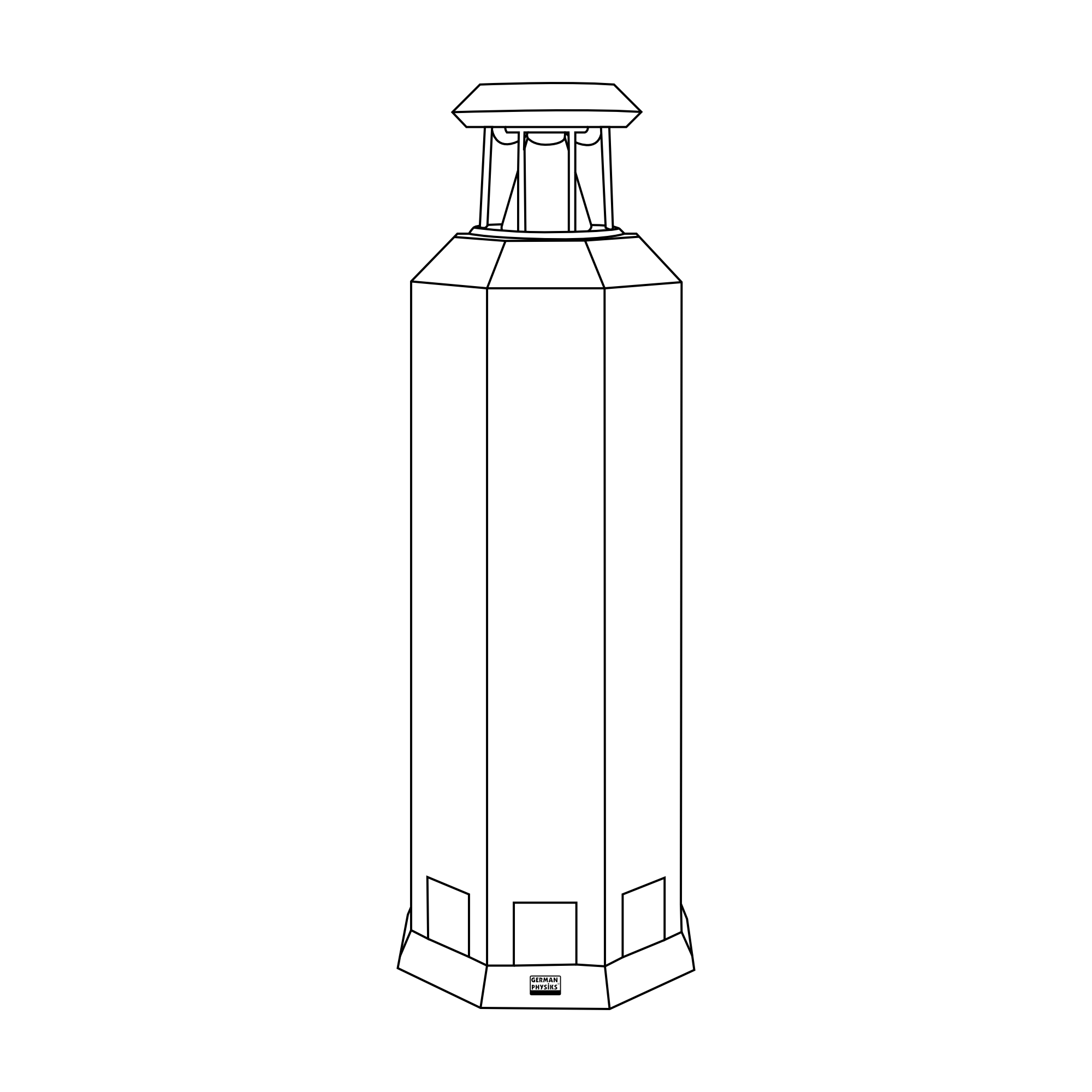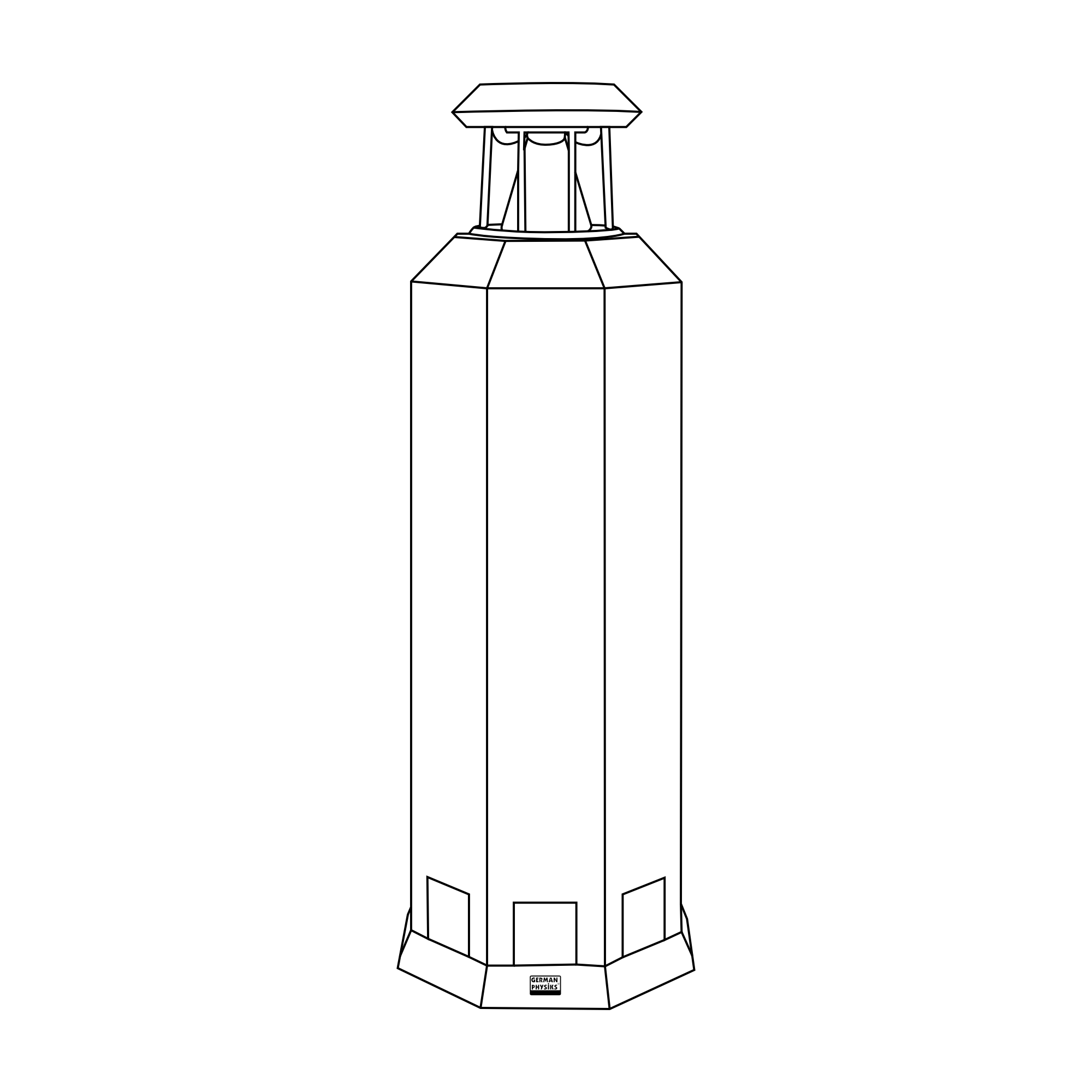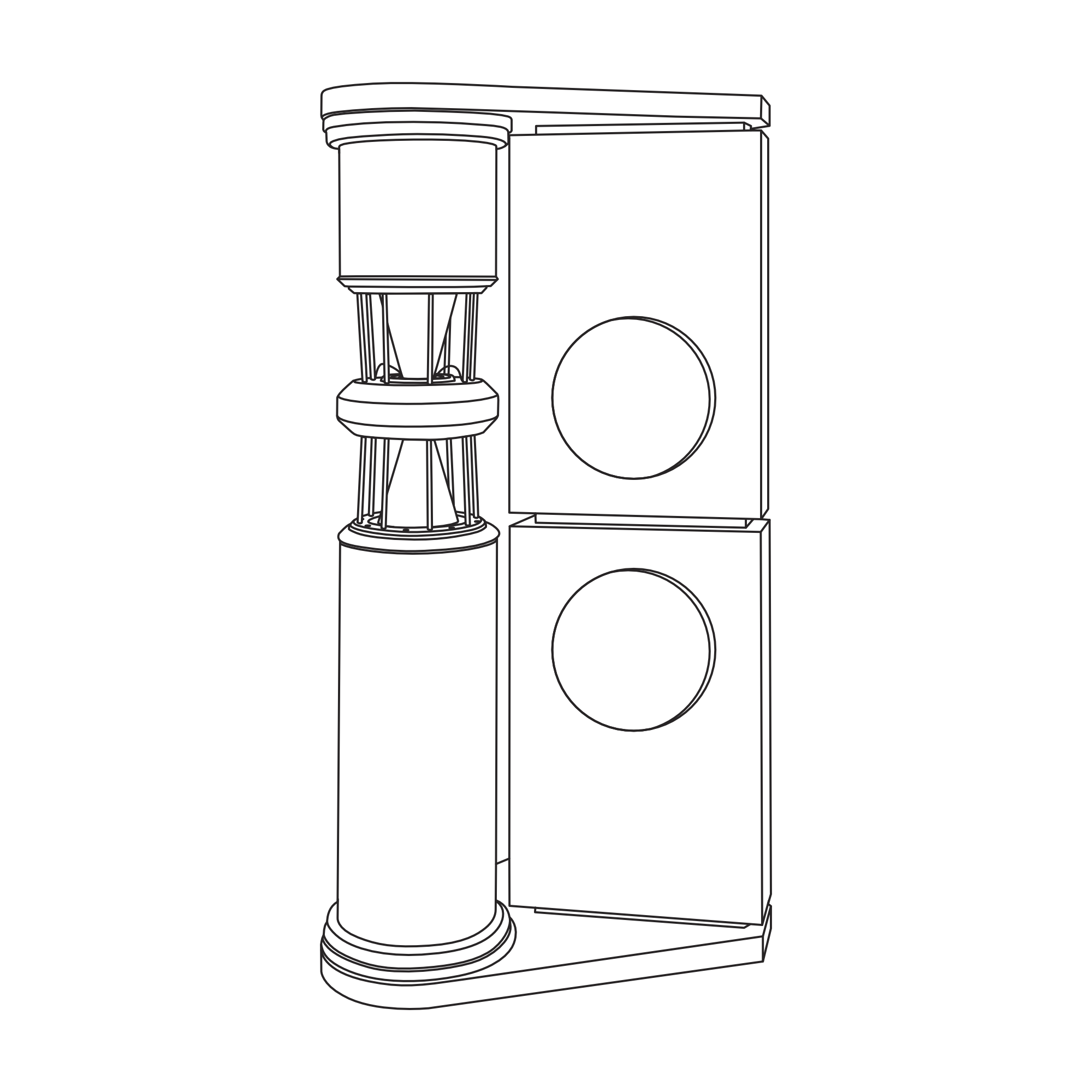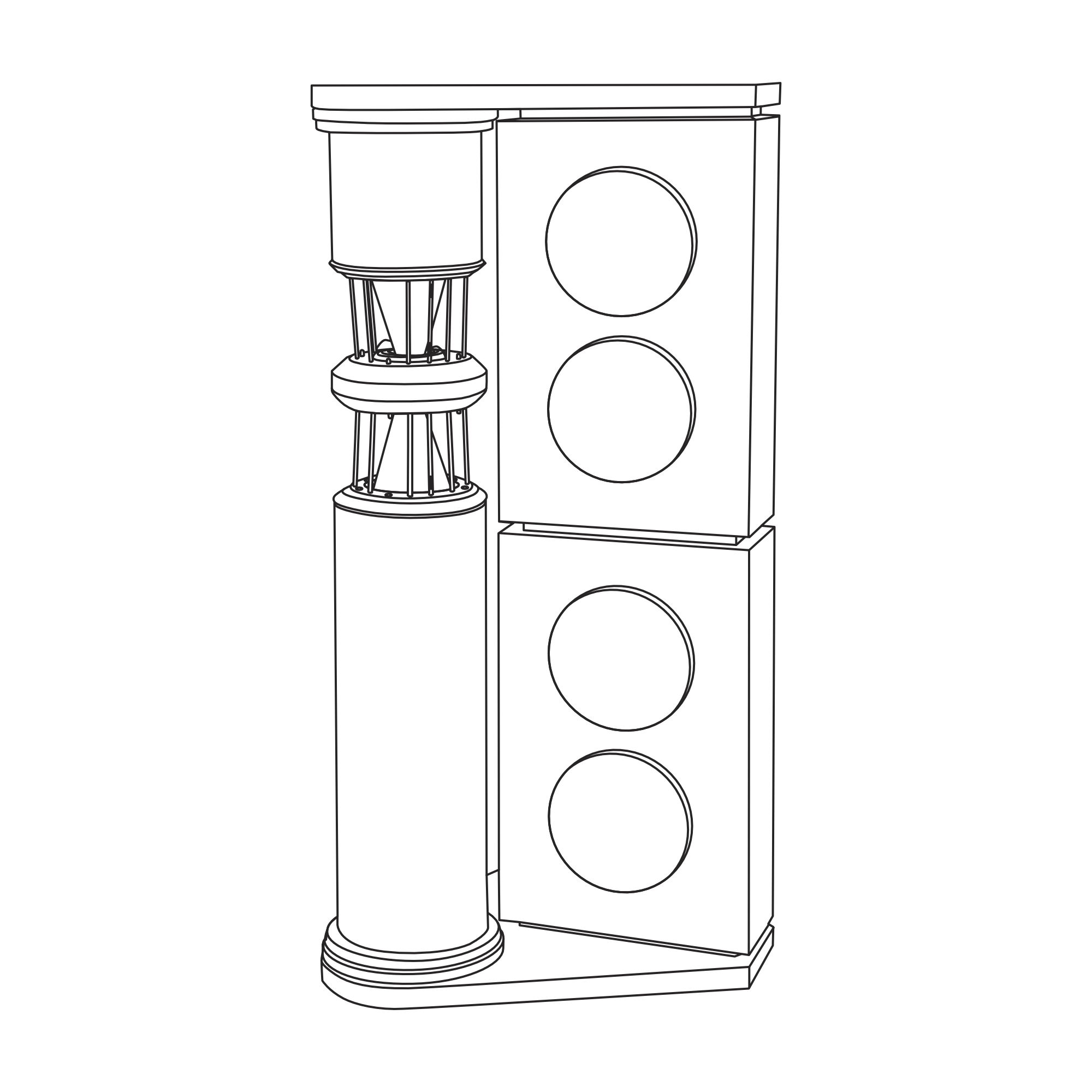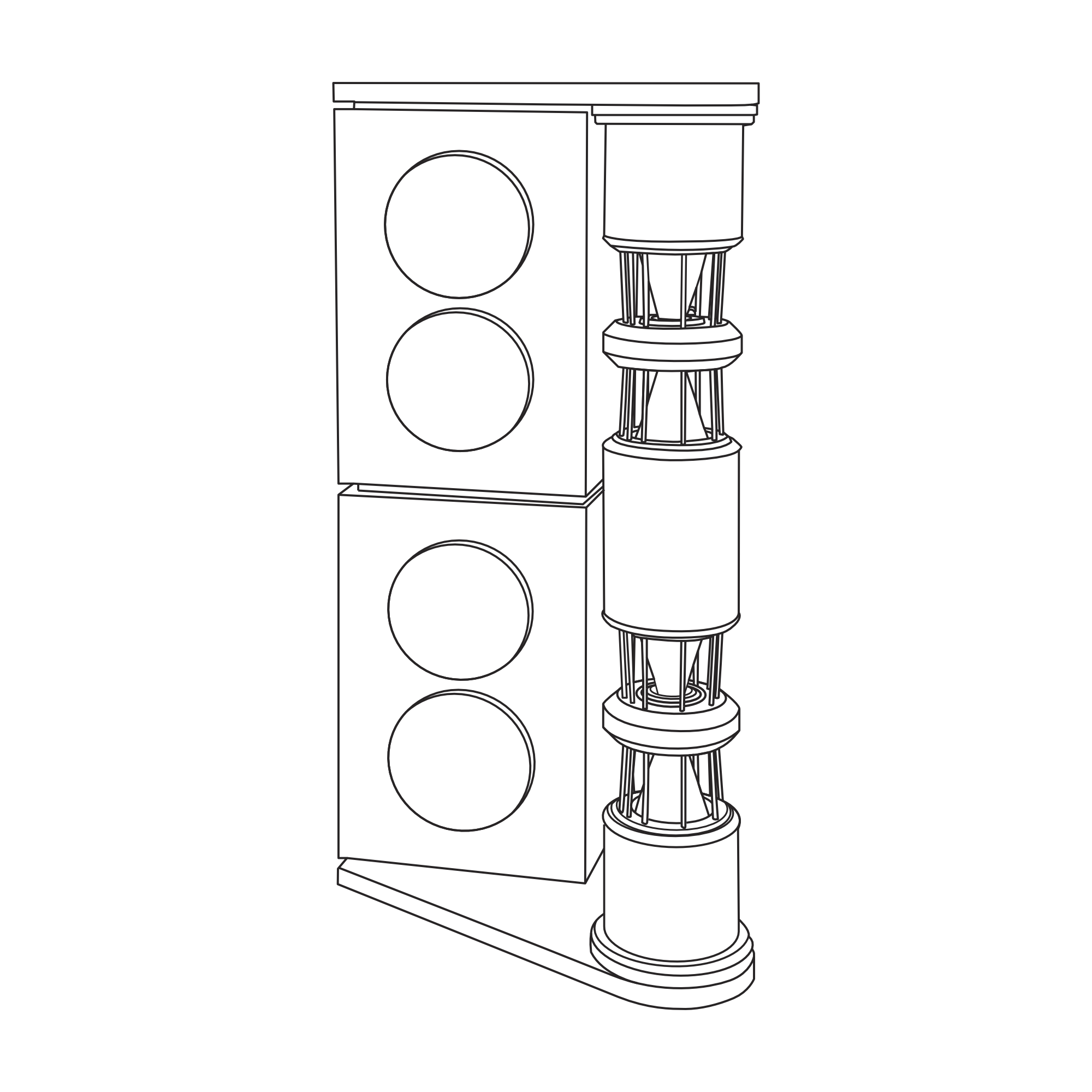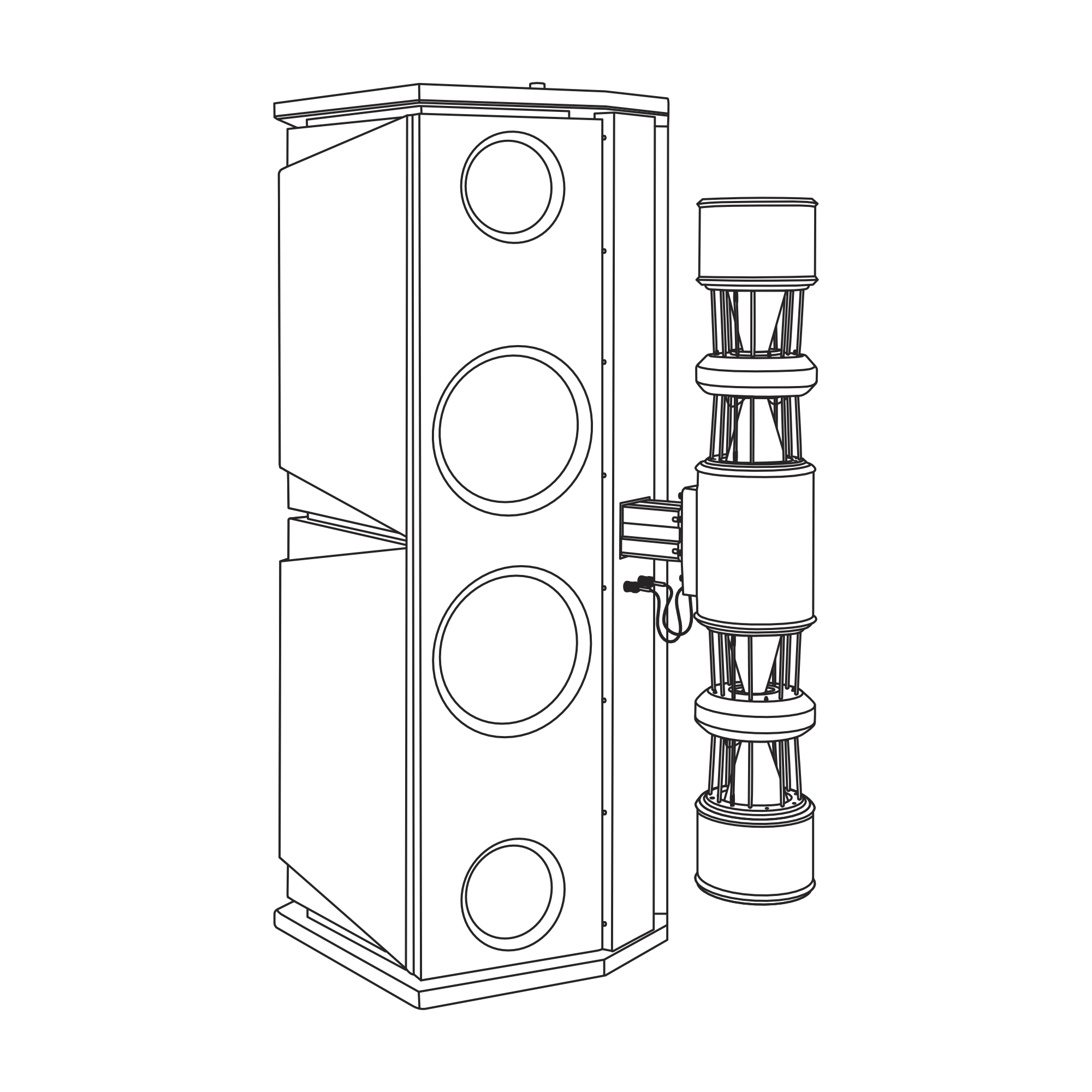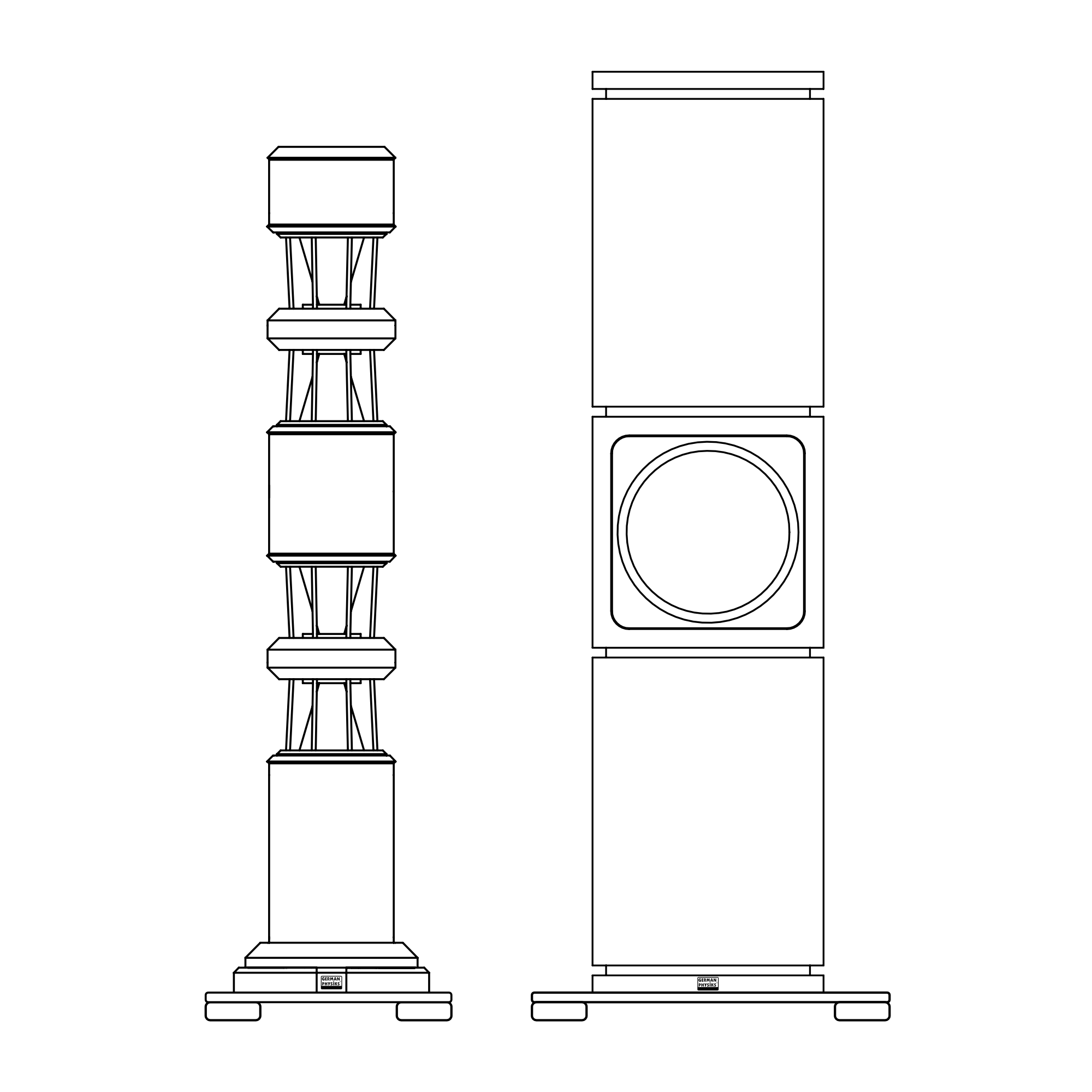The Loreley MK III
Omnidirectional Loudspeaker
Reference Series
The Loreley Mk III is designed to provide the listener with a very good taste of the “concert experience” that our flagship Gaudi provides, but in a smaller cabinet and at a lower price. It uses the same four DDD driver array as the Gaudi, together with two 12-inch woofers and four 10-inch passive radiators to produce a truly emotionally involving musical performance. This is enhanced by the Loreley’s ability to produce an immersive stereo image like that experienced in the concert hall. The Loreley Mk III is capable of reproducing very high sound levels, up to 120dB, which allows live music dynamics to be more realistically reproduced. At the same time, it can accurately reproduce the low-level detail and delicate nuances that are the essence of a musical performance.

The Loreley Mk III is designed to be bi-amped using an active crossover. This means that it uses two power amplifiers to directly drive each loudspeaker: one for the DDD drivers and one for the woofers. The signal split for each section is performed at low level using a German Physiks DSP-X digital crossover, which is supplied with the loudspeaker. Active operation provides a much higher level of performance than is possible with a passive crossover and allows the full potential of this high-quality design to be realised.
Independent Bass Enclosures
Each loudspeaker has two large independent bass enclosures mounted one on top of the other, which stand between a top and a bottom plate. None of these components is attached to the other using screws or any form of hard connection, but are held together by an interlocking collar arrangement. This greatly reduces resonances and also makes the column more difficult to topple. Each enclosure is fitted with a 12-inch inverted dome driver that has a maximum excursion of 3 inches. Distortion levels are typically a tenth of those of conventional 18-inch sub woofers at comparable output levels. In addition, their acceleration and transient responses are far superior due to the immense magnetic forces generated by the massive rare earth magnets we use and to the very high stiffness of the dome diaphragms. The net result is a system with a very extended and very clean low frequency response, that is also capable of prodigious output levels, exceeding 110dB at 18Hz.
Freedom from Power Compression
Power compression, the reduction in dynamic range caused by heating of the voice coil, is much reduced over conventional woofer drivers due to the ultra-wide, under-hung voice coil and triple magnet structure we employ. Power handling is also correspondingly greatly increased over that of conventional designs.
The revolutionary DDD driver
The heart of all German Physiks loudspeakers is our revolutionary DDD driver. This is an omnidirectional driver with an exceptionally wide frequency range. Despite its simple appearance, it is in reality an extremely sophisticated design.
It provides 8 important advantages to all German Physiks loudspeakers and this combination is what sets them apart from other loudspeakers.
A realistic stereo image more like you experience in the concert hall.
A stereo image that is enjoyable in almost all positions in your room.
An exceptionally coherent sound.
Accurate portrayal of musical instruments’ tonal characteristics.
An exceptional transient response.
Being omnidirectional they are comparatively quick and easy to set up.
The DDD driver’s low moving mass reduces cabinet resonances.
The carbon fibre DDD driver is physically extremely rugged.
High quality German Physiks DSP-X digital electronic crossover
The Loreley Mk III is designed for active operation. In this arrangement, the usual passive crossover is omitted and each section of the loudspeaker is driven directly by a separate external power amplifier. The signal to drive each power amplifier is provided by a German Physiks DSP-X digital crossover, which is supplied with the loudspeaker. This is a high-quality unit constructed using premium components and is housed in a heavy steel and aluminium chassis.
The adjacent table shows the recommended amplifier rating for each section of the loudspeaker.
Active operation with a digital crossover provides the following advantages:
It allows much better damping and control of the drivers and also provides a significant improvement in dynamics and resolution.
With a digital crossover, the filter characteristics can be much more accurately defined.
The possibility of a difficult low frequency load that can occur with some passive crossover designs and which can cause some amplifiers to clip is eliminated. Needless to say, the passive crossovers in German Physiks loudspeakers are well behaved in this respect.
It eliminates the changes in crossover characteristic that can occur with a passive crossover if the loudspeaker is played at high levels for long periods and the component values drift due to heating.
The resistive elements in a passive crossover that dissipate power are eliminated, increasing efficiency.
The Emperor DSP-X is pre-configured at the factory, so all the customer has to do is connect it into the system and switch it on. The output levels of the crossover’s two sections can be adjusted via a front panel control. This allows a degree of compensation for room response errors.
| Section | Minimum Power |
|---|---|
| DDD drivers | 200W/4 ohms |
| Woofers | 200W/4 ohms |
Low resonance cabinet design enhances transparency
To realise the full potential of this loudspeaker, considerable effort has been put into creating a highly rigid structure in order to minimise the radiation of sound energy through the cabinet panels. The colouration this produces is one of the principle causes of degradation of a loudspeaker’s ability to resolve fine detail and thereby produce a sense of realism, as it smears and generally confuses the sound.
The Loreley Mk III’s DDD drivers solve this problem by having very small enclosures, minimising the area of any potential vibrating surface. By being cylindrical, they eliminate the resonances that can arise with a conventional rectangular or square section cabinet. Because they are made from aluminium, a comparatively soft metal, residual vibration of the enclosure is minimised. The DDD driver enclosure end-caps are made from non-resonant MDF and the enclosure is packed with damping material to dissipate any standing waves. The result is that the Loreley Mk III has the clarity that we normally associate with electrostatic loudspeakers and for the same reason: the DDD drivers essentially have no enclosure to colour the sound.
The bass system covers the range from 180Hz downwards. This is divided into two independent cabinets, so the panels are smaller and therefore stiffer and more vibration resistant than if a single large enclosure were to be used. All the cabinet vertical surfaces are non-parallel to prevent the formation of standing waves between them. Internal bracing increases rigidity to suppress resonances. Residual vibration is minimised by applying a special damping material called Hawaphon®, to the inside surface of each panel.
Hawaphon®, consists of a polymer sheet containing a matrix of small cells filled with fine steel shot. It adds mass to the panels to reduce the resonant frequency and the ability of the balls in each cell to move against each other provides a very effective way of converting vibration energy into heat. Originally developed as an anti-surveillance measure for use in military and government buildings, Hawaphon® achieves broadband attenuation of structure-borne sound of more than 50dB, which is an exceptionally high figure.
To damp resonances of the air within the cabinet, the whole of the interior is lined with a 1cm thick layer of high-density felt. This is achieved by fitting pieces of felt that are precisely cut to fit each panel, rather than just inserting a roll of felt into the cabinet. This is a time-consuming process, but we believe produces a superior result and is typical of the attention to detail that we lavish on all of our products.
Designed for a lifetime of listening pleasure
As you would expect from a German product, the quality of construction and reliability are first class. We use the same quality of parts in the Loreley speaker as in our luxury products, where we design for a minimum life expectancy of 25 years.
Meticulous care and attention are paid during manufacture. Prior to assembly all components and materials are subject to a rigorous inspection. We also carry out detailed inspections at each stage of the manufacturing process. We can afford to do this as we build our products by hand in small batches. After assembly, the performance of each loudspeaker is measured. It is then burnt-in for at least 12 hours and then measured again. Once the burn-in process is complete, each loudspeaker is given a final detailed physical inspection before being packed.
Easy to set-up and use
The DDD driver’s omnidirectional radiation pattern and wide frequency range make the Loreley Mk III less critical of its position in the room than conventional loudspeakers, so they are comparatively quick and easy to set up. Another advantage of being omnidirectional is that no toe-in adjustment is required, which further simplifies the set-up procedure.
The angled front faces of the bass cabinets allow the Loreley Mk III to be set relatively close to the rear wall.
Finish options
To achieve a luxurious look that matches their outstanding sound quality, all our loudspeaker cabinets are hand-built and finished in Germany by skilled cabinet makers.
The standard finishes for the Loreley MK III are high-polish polyester in black or white, carbon fibre and macassar, walnut cluster and pappel cluster high-polish veneers.
Other high-polish veneers and high polish polyester in custom colours are available to special order. Please consult your dealer for price and availability.
Impedance: 4 ohms
Frequency response: 21 – 24,000Hz
Power handling: Nominal 1,050W / Short term 1,600W
Amplification required with active crossover: 2 power amplifiers per channel
DDD section: minimum 200W/4ohms
Woofer section: minimum 200W/4 ohms
Crossover frequency: 180Hz
Crossover slopes: DDD section 12dB/octave electronic & 24dB/octave acoustic, Woofer section 18dB/octave electronic & 24dB/octave acoustic
Sensitivity: 89.8dB for 1W at 1m
Maximum output level: 120dB
Operating principle: 2-way loudspeaker with 360° surround radiation using the German Physiks DDD driver
Input connectors: 2 sets of binding posts
Drivers: 4 x carbon fibre DDD drivers
2 x 12-inch woofers
4 x 10-inch passive radiators
Recommended room size: 50 - 240 square metres (530 – 2,534 square feet)
Dimensions: 700mm W x 1,800mm H x 1,000mm D (27.6" W x 70.9" H x 30.4" D)|
Weight: Approx 420kg / Approx 924lbs
Warranty: 5 years
As part of our process of continually improving our products, we reserve the right to change specifications without notice
German Physiks DDD Loudspeakers Models

